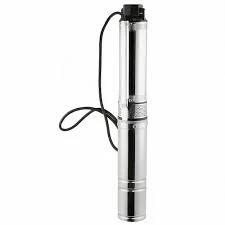Nov . 16, 2024 14:43 Back to list
what is the difference between submersible pump and centrifugal pump
Understanding the Difference Between Submersible Pumps and Centrifugal Pumps
Pumps play an essential role in various industries, facilitating the transfer of fluids. Among the wide range of available pumps, submersible pumps and centrifugal pumps are two widely used types, each designed for specific applications and functions. Understanding the differences between these two types of pumps is crucial for selecting the right one for a given task.
Definition and Working Principles
Submersible Pumps As the name implies, submersible pumps are designed to operate while submerged in the fluid they are pumping. These pumps are typically sealed and waterproof, allowing them to function underwater without risking damage from the liquid. The working principle of a submersible pump involves an electric motor that drives a multistage centrifugal pump mechanism, pushing fluid to the surface. This design is particularly advantageous for applications such as dewatering, sewage pumping, and well water extraction.
Centrifugal Pumps In contrast, centrifugal pumps operate primarily above the fluid they are pumping. These pumps use a rotating impeller to transfer kinetic energy to the fluid, which then flows outward through the pump casing due to centrifugal force. This type of pump is widely used in water supply systems, chemical processing, and heating applications. The simplicity of their design and versatility makes centrifugal pumps one of the most common types of pumps in use today.
Key Differences
1. Location of Operation The most fundamental difference lies in their operational locations. Submersible pumps function underwater, whereas centrifugal pumps are usually positioned above the fluid source.
what is the difference between submersible pump and centrifugal pump

2. Design and Construction Submersible pumps are designed to be waterproof and often feature a hermetically sealed motor to prevent water entry. This makes them heavier and sometimes more complex to install. On the other hand, centrifugal pumps have simpler designs, with their motors located above the fluid level, which generally makes them lighter and easier to maintain.
3. Applications Because of their design, submersible pumps are ideal for deep well applications, sump pumping, and applications that require the fluid to be lifted from significant depths. Conversely, centrifugal pumps are more suitable for applications requiring high flow rates, such as in water supply systems, irrigation, and industrial processes.
4. Efficiency and Performance Submersible pumps are generally more efficient when pumping water from deep underground, as they eliminate the need for suction lift. In contrast, centrifugal pumps may struggle with suction lift if the inlet is positioned too far from the fluid source. When handling large volumes of fluid, centrifugal pumps often outperform submersible pumps due to their ability to maintain a consistent flow rate.
5. Maintenance and Lifespan While submersible pumps are designed for long-term service, their submerged nature can sometimes make troubleshooting and maintenance challenging. In contrast, centrifugal pumps are easier to service as they are accessible at the surface, contributing to generally lower maintenance costs.
Conclusion
When choosing between a submersible pump and a centrifugal pump, it is important to consider the specific requirements of the application, including the depth of fluid, the desired flow rate, and the overall system design. Submersible pumps are optimal for deep water extraction, while centrifugal pumps excel in applications that require steady fluid movement with minimal suction lift. By understanding these fundamental differences, operators can make informed decisions that lead to optimal performance and efficiency in their pumping systems.
-
Submersible Water Pump: The Efficient 'Power Pioneer' of the Underwater World
NewsJul.01,2025
-
Submersible Pond Pump: The Hidden Guardian of Water Landscape Ecology
NewsJul.01,2025
-
Stainless Well Pump: A Reliable and Durable Pumping Main Force
NewsJul.01,2025
-
Stainless Steel Submersible Pump: An Efficient and Versatile Tool for Underwater Operations
NewsJul.01,2025
-
Deep Well Submersible Pump: An Efficient 'Sucker' of Groundwater Sources
NewsJul.01,2025
-
Deep Water Well Pump: An Efficient 'Sucker' of Groundwater Sources
NewsJul.01,2025
-
 Submersible Water Pump: The Efficient 'Power Pioneer' of the Underwater WorldIn the field of hydraulic equipment, the Submersible Water Pump has become the core equipment for underwater operations and water resource transportation due to its unique design and excellent performance.Detail
Submersible Water Pump: The Efficient 'Power Pioneer' of the Underwater WorldIn the field of hydraulic equipment, the Submersible Water Pump has become the core equipment for underwater operations and water resource transportation due to its unique design and excellent performance.Detail -
 Submersible Pond Pump: The Hidden Guardian of Water Landscape EcologyIn courtyard landscapes, ecological ponds, and even small-scale water conservancy projects, there is a silent yet indispensable equipment - the Submersible Pond Pump.Detail
Submersible Pond Pump: The Hidden Guardian of Water Landscape EcologyIn courtyard landscapes, ecological ponds, and even small-scale water conservancy projects, there is a silent yet indispensable equipment - the Submersible Pond Pump.Detail -
 Stainless Well Pump: A Reliable and Durable Pumping Main ForceIn the field of water resource transportation, Stainless Well Pump has become the core equipment for various pumping scenarios with its excellent performance and reliable quality.Detail
Stainless Well Pump: A Reliable and Durable Pumping Main ForceIn the field of water resource transportation, Stainless Well Pump has become the core equipment for various pumping scenarios with its excellent performance and reliable quality.Detail
